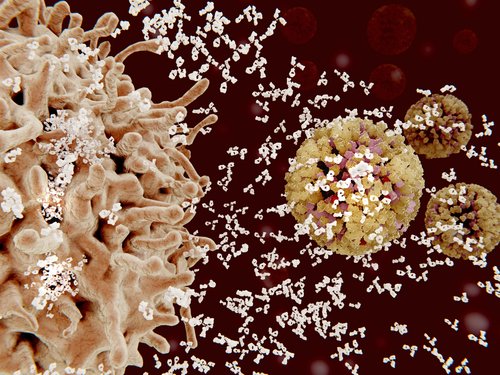German Research Foundation Awards $14.7 Million to Autoimmune Disease Project

The German Research Foundation has awarded a 13-million-euro grant to a consortium that is trying to develop treatments for autoimmune diseases, such as systemic lupus erythematosus.
The four-year grant, equivalent to $14.7 million, was to the TRR130 Transregional Collaborative Research Center, which is working on B-cells: Immunity and Autoimmunity. The center, a collaboration of two universities and a university hospital, is trying to identify undiscovered mechanisms of the immune system as well as develop treatments for autoimmune diseases.
The immune system consists of multiple cell types with different functions. B-cells produce antibodies that can recognize potentially harmful foreign elements.
Researchers at the University of Erlangen-Nürnberg, University of Freiburg, and the Charité Berlin university hospital want to answer several questions about the mechanisms involved in B-cell activity, according to a press release,
They include: What makes B-cells produce and release antibodies? What makes them remember foreign elements that are potentially harmful? Why do some of the antibodies perceive the body’s own elements as potentially harmful and attack them?
A previous consortium project showed that the surface receptor that activates B-cells, called a B-cell receptor, works differently than the way researchers assumed for decades. In another project, researchers identified the mechanisms that allow B-cells to respond to infectious elements they have never encountered before.
The consortium is also studying what happens when B-cells become dysfunctional and begin promoting autoimmune disorders such as lupus, rheumatoid arthritis, and multiple sclerosis. Finally, the researchers want to identify ways to develop therapies for B-cell-driven illnesses.
B-cell-depleting drugs have shown some effectiveness in combating autoimmune diseases. But this strategy attacks B-cells in general and not autoantibody-producing cells specifically.
To get around this problem, consortium researchers have developed a new treatment approach that focuses on eliminating only autoantibody-producing cells. They have successfully tested in an animal model, and hope to test it in lupus patients soon.
The German Research Foundation, a government agency, is Europe’s largest research funding organization.






